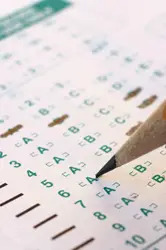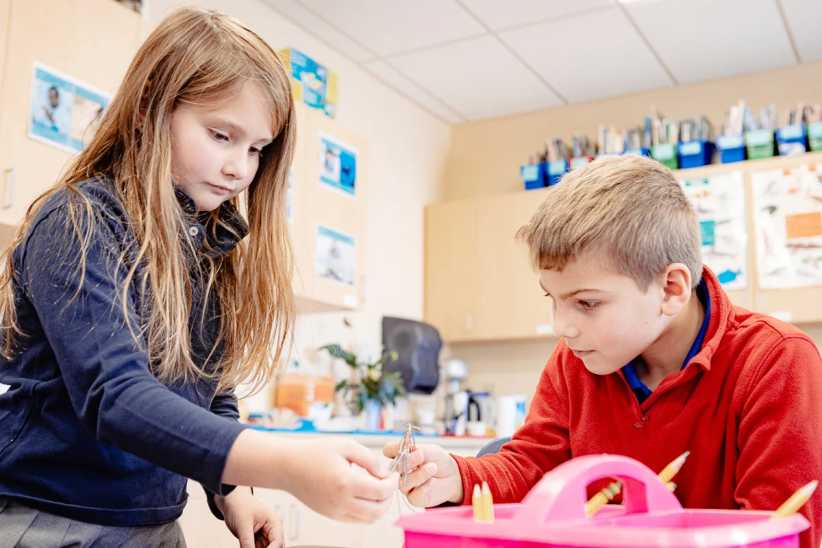Standardized assessment tests have become make-it-or-break-it measures for both students and schools in New York state. We took a look at how these tests, along with the No Child Left Behind Act, are affecting our children’s overall education. Plus, see our tips on taking standardized assessment tests, for students and their parents.
 Our kids are told to get a good night’s sleep, eat a healthy breakfast, and pack their number two pencils. These are the instructions they receive for the day of their NYS standardized assessment test. In terms of preparation, the reality is that they will need much more.
Our kids are told to get a good night’s sleep, eat a healthy breakfast, and pack their number two pencils. These are the instructions they receive for the day of their NYS standardized assessment test. In terms of preparation, the reality is that they will need much more.
Taking standardized assessment tests is the prevailing practice of the latter half of the 20th century, and has been intensified in the last two decades. In states like New York, Florida, and Texas, and even some large cities like Chicago, passing the exam is mandatory for promotion to the next grade. These days, when schools too are issued report cards, and everyone (including the President) is measuring the results, tests count for more-and making the grade has become as significant for the school as the student.
Is NCLB Really Working for Children?
When George Bush signed No Child Left Behind (NCLB) into law in 2002, its premise was to help close racial achievement gaps across the country while increasing every child’s proficiency in math and reading. Since then, NCLB has resulted in as much confusion, uncertainty, and resentment as actual student achievement. Our own NYMetroParents poll reveals that twice as many parents feel NCLB did not benefit their child as those who feel it helped.
|
For more information, visit the State education site: www.emsc.nysed.gov/sar or the City schools site: http://schools.nyc.gov/Accountability/YearlyTesting |
One thing is for certain: NCLB has placed new emphasis on the outcome of standardized tests. Nationwide, children are assessed annually to determine their mastery of reading comprehension, English, and writing and math concepts. Here in New York, these tests are known as the ELA and Math, and they begin in grade 3 and run through grade 8. There are also tests in other subjects, like science and history, and other grade levels.
When it comes to assessment tests, The National Education Association notes progress in those achieving a higher standard, particularly among Hispanic and African-American students. In New York, and even more so NYC, test passing rates have risen recently, but one wonders if such test scores mean our kids are smarter, or will be more successful?
In a 2009 New York Times round-table, Marcus White of the Manhattan Institute was among the critics who say no, only that we have learned to “teach the test.” White says “…we must look at the difference between the elevation of scores and genuine learning” and believes that test-driven learning cannot promote all the traits needed for life success.
Have We Skewed Teaching to These Exams?
|
Standardized Testing:
The NYMetroParents Poll
Do you feel NCLB has benefited your child? – NO: 67% Do you believe our schools adequately prepare students for testing? – Split 50/50 Do you believe we push achievement tests on our children too early? – YES 59% |
Are we, as President Obama once said, “Spending the academic year preparing students to fill inlittle bubbles on standardized tests”? Many teachers believe we need to do more than just coach tests to develop a whole child. New York’s public elementary school students once had a broad educational experience that encompassed regular art, music, science, foreign language, and physical education classes. Nowadays, those programs have been reduced to allow extra periods for test-driven work. Seventy percent of instructors observe increases in reading, writing, and math, and a decrease in the other subjects.
Beyond periods and subjects, the mode of teaching itself has changed, since teachers use assessment data to adapt and improve classroom instruction. Furthermore, teachers will focus on certain skills (let’s say multiplication tables) if there is a lot of it on the test, but will forego another type of math application (like story problems) that is just as critical to skills development.
Is Test Prep Too Good or Too Much?
Data shows that students who attended pre-school tend to do better on their 3rd grade assessment tests than those who did not. Academies and tutoring programs are springing up everywhere for young children, and there are video tutorials to arm youngsters for testing. Some parents feel this is going too far. In our parent poll, a small majority responded yes, we are pushing tests on our children a little early.
|
For more test-taking tips: |
On the other hand, when polled about how adequately our children were prepared for their tests, parents were about evenly split. Since the emphasis currently remains on standardized test scores, parents are oriented to gear up the kids.
Teachers remind us that the same rules apply to taking any test. Be sure to follow directions carefully and to fill in the right lines/spaces. Remember it is only a part of how performance gets measured and there’s no reason to be nervous. Stay calm, breathe deeply, and maintain a positive attitude. If the child is experiencing anxiety, he must share those feelings with a parent and/or teacher.
|
Tips for Standardized Assessment Tests
|



















